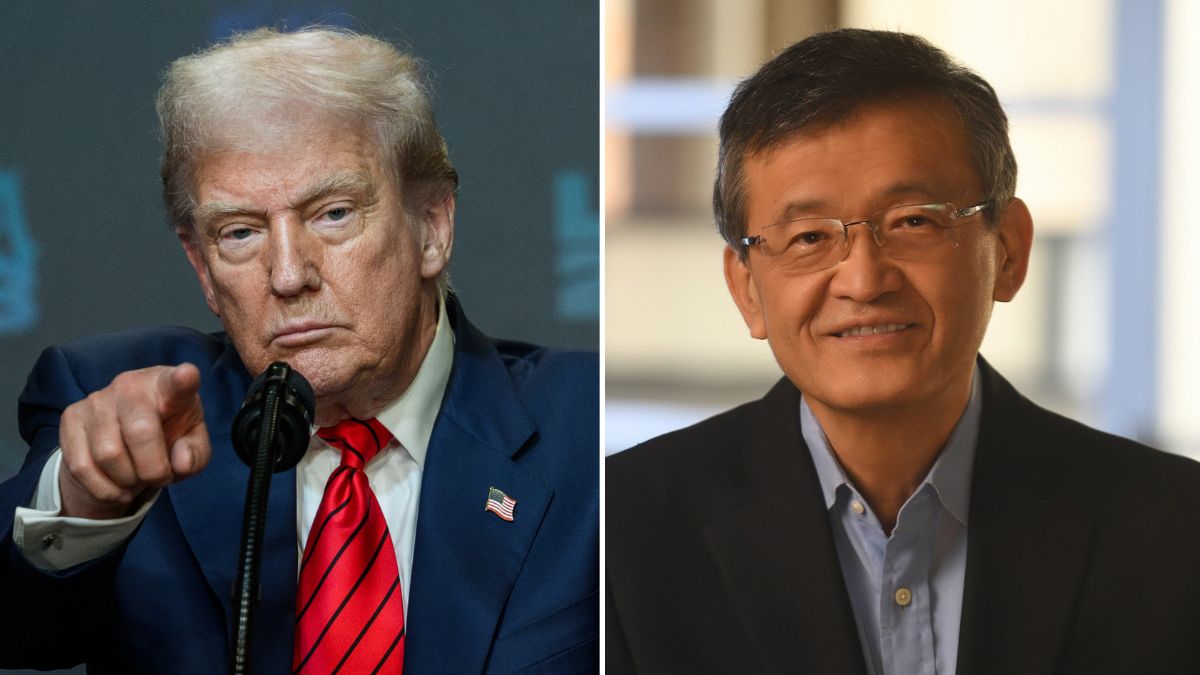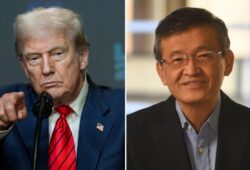
President Donald Trump lashed out this Thursday at Intel CEO Lip-Bu Tan, demanding his immediate resignation over alleged conflicts of interest stemming from his ties to Chinese tech companies. In a post on his Truth Social network, Trump wrote: “There is no other solution to this problem.”
READ ALSO. Apple announces $600 billion investment in the US: How will it invest that money?
This accusation adds to the former president’s growing pressure on the semiconductor industry. On Wednesday, Trump warned he would impose a 100% tariff on imported computer chips unless companies manufacture them, or plan to manufacture them, in the United States.
Trump’s statements are based on a report by Reuters revealing that Tan has invested in hundreds of Chinese tech firms, including at least eight with ties to the People’s Liberation Army, the military wing of the People’s Republic of China.
READ ALSO. Goodbye AT&T? Reports say the company wants to sell its Mexican subsidiary
What investments does Lip-Bu Tan have in China?
A review of corporate filings in China and the United States, conducted by Reuters, found that Lip-Bu Tan maintains direct control over more than 40 Chinese companies and funds, as well as minority stakes in over 600, mainly through his venture capital firms. Many of these investments are shared with Chinese government entities.
Tan made these investments through Walden International, the venture capital firm he founded in San Francisco in 1987, and via two Hong Kong-based companies: Sakarya Limited and Seine Limited. According to Shanghai Stock Exchange documents, Tan was the sole owner of Sakarya until October 2024.
Although a source familiar with the matter told Reuters that Tan had already divested from some of these investments, Chinese databases still show many of them as active. Furthermore, no conclusive evidence has been presented to confirm that Tan has completely ceased operations in the Asian country.
Intel did not comment on Tan’s investments in China but stated that the executive had completed the questionnaires required by the SEC, in which any potential conflicts of interest must be disclosed. “We handle any potential conflicts appropriately and provide disclosures as required by SEC rules,” said a spokesperson.
Who is Lip-Bu Tan and what is his background in the tech industry?
Lip-Bu Tan is a renowned executive in the tech sector with more than 20 years of experience in semiconductors and software. He officially became CEO of Intel on March 18, 2025, succeeding interim co-CEOs David Zinsner and Michelle Johnston Holthaus.
Tan has a strong background in corporate leadership. He was CEO of Cadence Design Systems from 2009 to 2021, where he led a strategic transformation that doubled the company’s revenue and achieved a 3,200% appreciation in its stock price. He also served as executive chairman of the company until 2023.
He is also the founder and chairman of Walden Catalyst Ventures and sits on the boards of Credo Technology Group and Schneider Electric. In 2022, he received the Robert N. Noyce Award, the highest honor from the Semiconductor Industry Association.
As for his academic background, Tan holds:
- Bachelor’s degree in Physics from Nanyang Technological University (Singapore)
- Master’s degree in Nuclear Engineering from the Massachusetts Institute of Technology (MIT)
- MBA from the University of San Francisco
What challenges does Intel face under Lip-Bu Tan’s leadership?
Tan’s arrival at Intel comes amid a complicated situation for the company. The American chipmaker has been surpassed by competitors such as Nvidia, AMD, Samsung, and Taiwan Semiconductor in the race to lead artificial intelligence and advanced semiconductor manufacturing.
Tan’s predecessor, Patrick Gelsinger, was forced to step down at the end of 2024 after failing to reverse Intel’s decline against its rivals. Despite his efforts to build chip factories on U.S. soil, the company’s debt and its competitors’ technological advantage proved insurmountable.
Moreover, in November 2024, Intel received a grant of nearly $8 billion from the Biden administration under the “CHIPS Act.” However, this amount was lower than initially expected due to concerns about the company’s ability to fulfill its commitments, according to The New York Times.
On Thursday, Intel’s shares dropped more than 2%, wiping out the gains made so far this year. In contrast, the S&P 500 index has risen by 9% during the same period. Intel’s market capitalization is around $90 billion, far behind its direct competitors.










